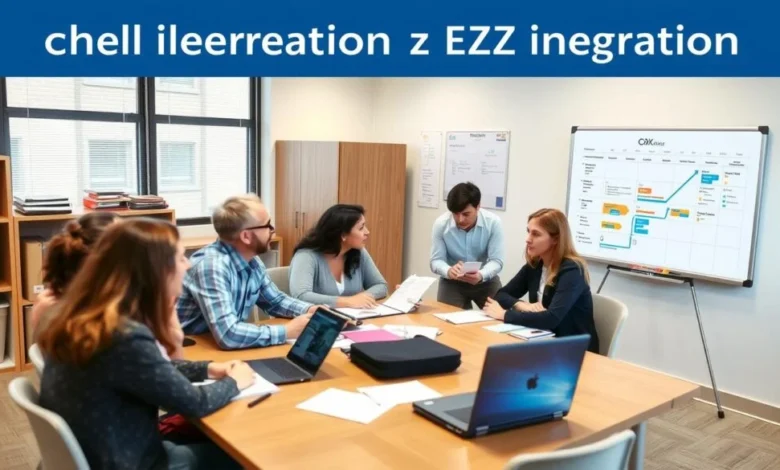Evaluating Online Quiz Quality in E-Learning: The Impact of Interactive Questions in School Environments

The digital transformation of education has placed online quizzes at the forefront of e-learning assessment strategies. For K-12 educators, understanding the effectiveness of these interactive tools is crucial for creating engaging learning experiences that yield measurable outcomes. Recent studies show that well-designed online quizzes can increase student engagement by up to 60% while providing valuable data on learning progress. This comprehensive guide explores how interactive questions shape the e-learning landscape, offering evidence-based insights for educators, instructional designers, and school administrators seeking to optimize their assessment approaches.
The Critical Role of Interactive Quizzes in E-Learning
Interactive online quizzes have revolutionized how students engage with educational content, transforming passive learning into active participation. Unlike traditional assessment methods, digital quizzes provide immediate feedback, personalized learning paths, and data-driven insights that benefit both educators and learners.

Interactive quizzes transform passive learning into active engagement, improving knowledge retention.
Key Benefits of Interactive Quizzes for Student Learning
Engagement and Active Participation
Interactive elements in online quizzes transform students from passive recipients of information into active participants in their learning journey. Research from the Journal of Educational Technology (2022) demonstrates that even simple interactive elements like clickable options increase student engagement by 42% compared to static content. This active involvement makes students more likely to retain information and apply concepts in practical scenarios.
Immediate Feedback Mechanisms
One of the most powerful aspects of online quizzes is the ability to provide instant feedback. When students receive immediate information about their performance, they can quickly identify misconceptions and correct their understanding. A 2021 study by the International Journal of Educational Research found that students who received immediate feedback showed 27% higher retention rates than those who waited for traditional graded assessments.
Enhance Your E-Learning Assessment Strategy
Download our free Interactive Quiz Design Templates and start creating engaging assessments that boost student learning outcomes. These research-backed templates are specifically designed for K-12 educators.Download Free Templates
Measuring Online Quiz Quality in Educational Settings
Evaluating the effectiveness of online quizzes requires a systematic approach focused on specific quality indicators. For K-12 environments, these criteria must align with educational standards while accommodating diverse learning needs.

Data-driven analytics help educators measure quiz effectiveness and student progress.
Essential Quality Criteria for E-Learning Quizzes
| Quality Criterion | Description | Measurement Approach |
| Question Diversity | Variety of question formats (multiple-choice, drag-and-drop, matching, etc.) | Format distribution analysis; engagement metrics per question type |
| Feedback Mechanisms | Quality and timeliness of feedback provided to students | Feedback specificity rating; time to improvement after feedback |
| Cognitive Level | Alignment with Bloom’s Taxonomy (recall, application, analysis, etc.) | Distribution across cognitive levels; performance patterns |
| Accessibility | Compliance with accessibility standards for all learners | WCAG 2.1 compliance check; assistive technology compatibility |
| Technical Performance | Loading speed, reliability, and cross-device functionality | Load time metrics; error rate; device compatibility testing |
| Learning Analytics | Quality of data collected for instructional improvement | Data granularity; actionable insight generation |
Aligning Quiz Design with Learning Objectives
Effective online quizzes must align closely with established learning objectives. A 2023 study published in the Journal of Computer Assisted Learning found that quizzes explicitly mapped to learning outcomes resulted in 31% higher achievement rates compared to generic assessments. This alignment ensures that quizzes serve as meaningful assessment tools rather than disconnected activities.

Aligning quiz questions with specific learning objectives improves assessment validity.
Question Types and Their Effectiveness
Different question formats serve distinct pedagogical purposes. Research from the Educational Technology Research and Development journal (2022) indicates that varied question types within a single assessment lead to more comprehensive understanding and higher engagement levels.Multiple-choice questions: Effective for knowledge verification but require careful design to avoid guessing. Most effective when including 4-5 plausible options with detailed feedback for each.Open-ended responses: Valuable for assessing deeper understanding and critical thinking. Most effective when combined with rubric-based auto-grading and example responses.Interactive simulations: Powerful for concept application and problem-solving. Most effective when scaffolded with guided questions and immediate feedback.Drag-and-drop interactions: Excellent for classification and relationship tasks. Most effective when visual design clearly indicates relationships between elements.Hotspot questions: Ideal for visual identification and spatial understanding. Most effective when combined with clear instructions and visual feedback.
Challenges in Implementing Interactive Quizzes in School Settings
Despite their benefits, schools face significant hurdles when implementing effective online quiz systems. Understanding these challenges is essential for developing sustainable assessment strategies.

Technical support and training are essential for successful quiz implementation.
Common Implementation Strengths
- Scalability across multiple classrooms and grade levels
- Automated grading reducing teacher workload
- Rich data collection for personalized learning
- Increased student engagement through interactive elements
- Flexibility in assessment timing and location
Common Implementation Challenges
- Technical infrastructure limitations in many schools
- Teacher training gaps for quiz design and implementation
- Ensuring accessibility for all students
- Balancing security with ease of access
- Integration with existing learning management systems
Technical Infrastructure Considerations
School technology infrastructure varies widely, creating disparities in quiz implementation. A 2022 survey by the Education Technology Consortium found that 47% of schools reported inadequate bandwidth for simultaneous online assessments, while 38% cited device limitations as a primary barrier to effective quiz deployment.
Teacher Training and Support
Educator preparedness significantly impacts quiz effectiveness. Research published in the Journal of Technology and Teacher Education (2021) revealed that teachers with formal training in digital assessment design created quizzes that generated 34% higher student engagement compared to those without specialized training.

Professional development is crucial for effective quiz design and implementation.
Overcome Quiz Implementation Challenges
Join our free webinar: “Solving the Top 5 Challenges in K-12 Online Quiz Implementation” featuring expert educators and instructional designers who have successfully integrated interactive assessments.Register for Free Webinar
Successful Interactive Quiz Formats for K-12 E-Learning
Innovative quiz formats can dramatically improve student engagement and learning outcomes. The following examples represent evidence-based approaches that have demonstrated success in school environments.

Gamified Quiz Experiences
Gamification elements transform standard assessments into engaging experiences. A 2022 study in the International Journal of Game-Based Learning found that quizzes incorporating points, badges, and leaderboards increased student participation by 74% and improved retention by 23% compared to traditional formats.
Effective implementation includes progressive challenge levels, immediate rewards for achievement, and visual progress indicators that motivate continued engagement.

Scenario-Based Assessment
Contextualizing questions within realistic scenarios enhances relevance and application. Research from Educational Psychology Review (2023) demonstrates that scenario-based quizzes improve knowledge transfer to real-world situations by 41% compared to decontextualized questions.
Effective implementation includes authentic contexts relevant to student experiences, branching decision paths, and reflection opportunities that connect assessment to practical application.

Adaptive Assessment Pathways
Adaptive quizzes that adjust difficulty based on student performance provide personalized assessment experiences. A longitudinal study published in Learning and Instruction (2022) found that adaptive quizzes reduced achievement gaps by 27% by meeting students at their current knowledge level.
Effective implementation includes intelligent difficulty adjustment algorithms, personalized feedback based on response patterns, and progress visualization that shows growth over time.
Multimedia-Enhanced Quiz Questions
Incorporating rich media elements into quiz questions significantly improves engagement and comprehension. Research from the Journal of Educational Multimedia and Hypermedia (2023) found that quizzes with multimedia elements resulted in 36% higher information retention compared to text-only assessments.

Multimedia elements enhance question clarity and engagement for diverse learners.
Collaborative Assessment Models
Team-based quiz formats promote peer learning and communication skills. A 2021 study in the Journal of Computer-Supported Collaborative Learning demonstrated that collaborative quizzes improved content mastery by 29% while developing essential social-emotional skills.

Collaborative quizzes develop both content knowledge and teamwork skills.
See Success Stories in Action
Access our detailed case studies showcasing how schools have successfully implemented these quiz formats and achieved measurable improvements in student engagement and learning outcomes.Download Case Studies
Best Practices for Designing Effective E-Learning Quizzes
Creating high-quality online quizzes requires intentional design approaches that balance pedagogical goals with technical considerations. These evidence-based practices can guide the development of effective assessment tools.

Thoughtful design processes lead to more effective assessment experiences.
Pedagogical Design Principles
Constructive Alignment
Ensure quiz questions directly align with learning objectives and instructional content. Research from the British Journal of Educational Technology (2022) shows that aligned assessments improve learning outcomes by 43% compared to misaligned assessments. Map each question to specific learning goals and ensure appropriate cognitive level targeting.
Scaffolded Difficulty
Structure quizzes to progressively increase in difficulty, building student confidence while challenging growth. A 2021 study in Instructional Science found that scaffolded quizzes reduced anxiety by 31% while improving performance by 24% compared to randomly ordered questions. Begin with confidence-building items before introducing more complex challenges.
Technical Implementation Guidelines
- Write clear, concise questions free from ambiguity
- Include relevant visuals that enhance understanding
- Provide specific, constructive feedback for each response
- Use consistent formatting and question structures
- Incorporate appropriate wait time for complex questions
- Ensure cross-device compatibility and responsive design
- Optimize media elements for quick loading
- Implement secure but user-friendly authentication
- Design for accessibility with screen reader compatibility
- Create backup options for connectivity issues
- Collect meaningful metrics beyond simple scores
- Analyze question-level performance data
- Track time-on-question for difficulty assessment
- Generate actionable reports for instructional adjustment
- Maintain student privacy while gathering useful data
Feedback Design Strategies
Effective feedback mechanisms significantly impact learning outcomes. Research published in Educational Technology Research and Development (2023) found that specific, timely feedback improved subsequent performance by 37% compared to generic or delayed feedback.

Detailed, constructive feedback transforms assessment into a learning opportunity.
“The most effective online quizzes don’t just measure learning—they actively contribute to it through thoughtful design and meaningful feedback.”
Dr. Maria Chen, Educational Technology Research Institute (2023)
Implementation Roadmap for Schools
Successful integration of interactive quizzes requires a systematic approach. This roadmap provides a structured path for schools at any stage of digital assessment implementation.

Collaborative planning ensures successful quiz implementation across school systems.Needs Assessment and Goal Setting
Begin by identifying specific learning needs and establishing measurable goals for quiz implementation. Document current assessment challenges and desired outcomes.Technology Infrastructure Evaluation
Assess existing technical capabilities including device availability, network capacity, and learning management system compatibility.Professional Development Planning
Develop targeted training programs for educators focusing on both pedagogical and technical aspects of quiz design and implementation.Pilot Program Implementation
Start with a small-scale implementation to identify challenges and refine approaches before full-scale deployment.Data Collection and Analysis Framework
Establish systems for gathering and analyzing quiz performance data to guide ongoing improvements.Full Implementation with Support Structures
Roll out the complete quiz system with robust technical and pedagogical support mechanisms in place.Continuous Evaluation and Refinement
Regularly assess effectiveness against established goals and make evidence-based adjustments.
Key Stakeholder Considerations
Successful implementation requires engagement from multiple stakeholders. Research from the Journal of Educational Administration (2022) indicates that implementations involving all key stakeholders were 68% more likely to achieve sustainable adoption.
| Stakeholder | Role in Implementation | Support Needed |
| Teachers | Primary quiz designers and implementers | Technical training, pedagogical guidance, time allocation |
| IT Staff | Technical infrastructure and support | Clear requirements, adequate resources, implementation timeline |
| Administrators | Resource allocation and policy alignment | ROI data, implementation metrics, policy guidance |
| Students | End users and feedback providers | Clear instructions, technical support, purpose explanation |
| Parents | Support and reinforcement | Assessment purpose communication, access guidance |
Emerging Trends in E-Learning Quiz Technology
The landscape of online assessment continues to evolve rapidly. Understanding emerging trends helps schools prepare for future developments in quiz technology.

AI-powered assessment systems represent the next frontier in personalized learning.
Artificial Intelligence in Quiz Design
AI technologies are transforming quiz capabilities through adaptive questioning and automated feedback. Research from the Journal of Artificial Intelligence in Education (2023) predicts that AI-enhanced quizzes will improve learning efficiency by up to 45% through precise targeting of knowledge gaps.
Extended Reality Integration
Immersive technologies like AR and VR are creating new possibilities for experiential assessment. A 2022 pilot study in the British Journal of Educational Technology demonstrated that VR-based quizzes improved concept retention by 34% for spatial and procedural knowledge compared to traditional formats.

Extended reality creates immersive assessment experiences that enhance engagement.
Learning Analytics Advancements
Sophisticated data analysis is enabling deeper insights into student learning patterns. The International Journal of Learning Analytics (2023) reports that advanced quiz analytics can predict learning difficulties with 83% accuracy, allowing for proactive intervention.
Transform Your E-Learning Assessment Strategy
Access our comprehensive E-Learning Quiz Toolkit, including templates, design guides, implementation roadmaps, and case studies—everything you need to create effective interactive quizzes for your school environment.Get Your Complete Quiz Toolkit
Conclusion: Maximizing the Impact of Online Quizzes
Interactive online quizzes represent a powerful tool for enhancing student engagement and learning outcomes in K-12 e-learning environments. By implementing evidence-based design principles, addressing implementation challenges, and leveraging innovative formats, schools can transform traditional assessment into dynamic learning experiences. The effectiveness of online quizzes ultimately depends on thoughtful alignment with learning objectives, appropriate technical implementation, and ongoing evaluation and refinement.
As educational technology continues to evolve, the potential for online quizzes to personalize learning and provide actionable insights will only increase. Schools that develop systematic approaches to quiz implementation now will be well-positioned to leverage future innovations in digital assessment. By focusing on quality criteria, best practices, and stakeholder engagement, educators can create quiz experiences that not only measure learning but actively contribute to it.
- slot depo 10k
- DINARTOGEL
- WAYANTOGEL
- DISINITOTO
- SUZUYATOGEL
- PINJAM100
- SUZUYATOGEL DAFTAR
- DEWETOTO
- GEDETOGEL
- slot gacor
- Paito hk lotto
- HondaGG
- PINJAM100
- DINARTOGEL
- DINARTOGEL
- PINJAM100
- PINJAM100
- PINJAM100
- PINJAM100
- PINJAM100
- HondaGG
- DWITOGEL
- bandar togel online
- situs bandar toto
- daftarpinjam100
- loginpinjam100
- linkpinjam100
- slotpinjam100
- pinjam100home
- pinjam100slot
- pinjam100alternatif
- pinjam100daftar
- pinjam100login
- pinjam100link
- MAELTOTO
- DINARTOGEL
- DINARTOGEL
- slot gacor
- DINARTOGEL
- DINARTOGEL
- DINARTOGEL
- DINARTOGEL
- DINARTOGEL
- DINARTOGEL
- TOTO171
- TOTO171
- TOTO171
- TOTO171
- TOTO171
- TOTO171
- TOTO171
- gedetogel
- TOTO171
- slot gacor
- bandar togel toto online
- link slot gacor
- situs slot gacor
- rtp slot gacor
- slot77
- PINJAM100
- PINJAM100
- gedetogel
- gedetogel
- gedetogel
- gedetogel
- gedetogel
- toto online
- bandotgg
- bandotgg
- bandotgg
- bandotgg
- bandotgg
- bandotgg
- bandotgg
- bandotgg
- bandotgg
- bandotgg
- bandotgg
- bandotgg
- bandotgg
- bandotgg
- slot pulsa
- slot
- rtp slot
- bandar togel online
- bandotgg
- gedetogel
- gedetogel
- hondagg
- slot
- slot77
- bandotgg
- bosgg
- togel online
- bandar toto online
- toto online
- slot gacor
- toto gacor
- slot online
- togel toto
- slot gacor toto
- slot
- slot
- dwitogel
- togel
- apintoto
- bandotgg
- Kpkgg slot
- nikitogel
- Slot gacor
- SLOT777
- slot gacor
- Slot gacor
- slot
- bandotgg
- dinartogel
- DINARTOGEL
- DISINITOTO
- bandotgg
- slot qris
- slot gacor
- rtp slot
- slot gacor
- slot toto
- slot88
- gedetogel
- slot4d
- slot777
- slot gacor
- bandotgg
- nikitogel
- nikitogel
- TOTO171
- WAYANTOGEL
- superligatoto
- superligatoto
- bandotgg
- slot toto
- slot toto
- ciputratoto
- dwitogel
- disinitoto
- dinartogel
- wayantogel
- toto171
- bandotgg
- depo 5k
- angka keramat
- prediksi togel
- prediksi sdy
- prediksi sgp
- prediksi hk
- togel4d
- bandotgg
- bandotgg
- ciputratoto
- ciputratoto
- slot gacor
- dewetoto
- dewetoto
- RUPIAHGG
- bandotgg
- dinartogel
- superligatoto
- ciputratoto
- slot77
- slot77
- depo 10k
- slot pulsa
- doragg
- DORAGG
- doragg
- slot gacor 2026
- doragg
- TOTO TOGEL
- slot pulsa
- Toto Togel
- pinjam100
- gengpg
- bosgg
- dwitogel
- dwitogel
- maeltoto
- dwitogel
- maeltoto
- dwitogel
- bandotgg
- dwitogel
- superligatoto
- superligatoto
- superligatoto
➡️ Baca Juga: Latihan Agility dan Keseimbangan untuk Atlet Bola Voli dan Basket
➡️ Baca Juga: Gencatan Senjata Iran-Israel Disepakati, Tapi Rudal Masih Terbang: Damai Sementara?



